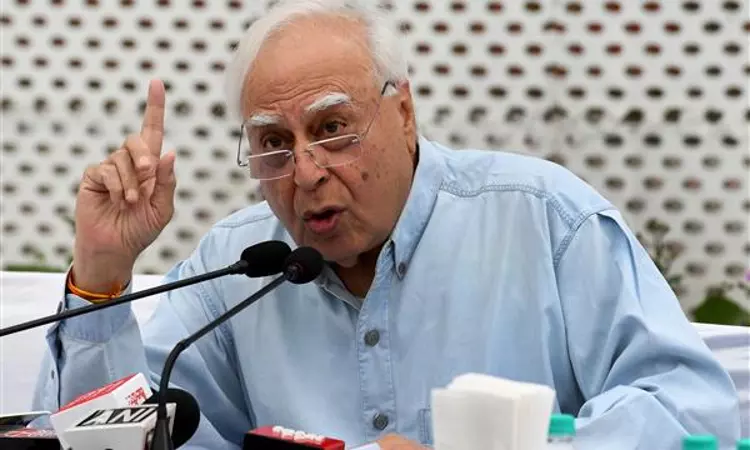At 'Insaaf' Launch, Kapil Sibal Speaks About Judicial Reforms, Alleges Misuse Of ED & CBI ; Says 'India Needs Change'
Awstika Das
12 March 2023 3:42 PM IST

Next Story
12 March 2023 3:42 PM IST
India should have four final courts of appeal in four regions of the country, while the Supreme Court should operate with a reduced strength only to interpret the Constitution, said senior advocate and Rajya Sabha MP, Kapil Sibal. The former union minister seemed to recommend a system modelled after the American judicial architecture, with the 12 circuit appellate courts and federal...
